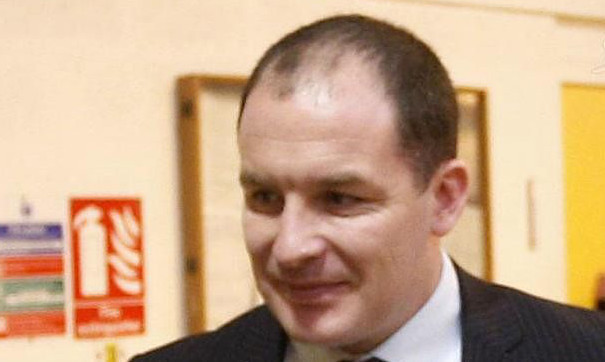
Former Labour MSP and current Assistant General Secretary of the Community union John Park has his say on Scottish Parliament powers.
“The Scottish Parliament will soon have a range of new powers significantly different from those that were first agreed ahead of its opening in May 1999.
But in almost 16 years, very little has changed in how the parliament carries out its day to day business.
In 2011, the current presiding officer, and fellow Fifer, Tricia Marwick, brought in some amendments to the parliament’s timetable and added the ability for MSPs to ask ‘emergency questions’.
These changes were widely welcomed and addressed concerns around the perception of MSP’s parliamentary work schedule and the ability of the parliament to ask questions of the Scottish Government on current issues.
So as new powers shift to the Scottish Parliament how can its structures change to reflect the new legislative and fiscal responsibilities it has?
One of the most frustrating aspects of my time in parliament was the lack of any real independence in the committees.
Most MSPs would admit that this is due to the fact that if you want to progress your career onto the government frontbench then you need to hold your party line.
Independently criticising government policy as a member of the governing party is certainly one way of minimising your chances of a ministerial career.
This has become more visible since 2011, where the overall majority enjoyed by the SNP in the chamber is also reflected in the committees.
Before my time in parliament I understand that it was very similar when Scottish Labour and the Liberals had a coalition majority between 1999 and 2007.
Some would say, ‘that’s politics’, but the committees play such an important role in the scrutiny of legislation that this needs to change.
New powers need to bring change to the parliament too. If the committees do not become more independent of the government and the main chamber then ultimately this will lead to poorer legislation.
So what needs to happen? Firstly, there needs to be serious consideration given to establishing an alternative parliamentary career structure for politicians to follow.
Talking about the remuneration of politicians doesn’t feel too clever in the current political climate.
However, I was openly critical of parliamentarians’ pension improvements and refused pay rises as MSP so I think I’ve earned the right to have a view on MSP pay.
This isn’t about giving all MSPs more money, this is about good governance and the establishment of a salary structure to recognise the independence of parliament and the role played by committee convenors.
What has been successful since 1999 is the committees’ use of experts to support their work. Perhaps this can be taken a step further too? I’d like to see to people from outside parliament being indirectly elected on to our committees. It’s not beyond our wit to devise a system that would enable this.
I’m convinced that bringing in experts and giving them responsibilities around scrutiny of legislation will lead to better laws being passed and greater independence within the committees.
Of course it’s not just what happens in the parliament that’s important engaging more people in politics will make the parliament more relevant to the lives of the people who MSPs represent.
The 80% turnout in the referendum was fantastic but I fear that figure may drop significantly in future elections.
We need to make it easier for people to vote and modernise the process of democratic engagement. I have long argued for votes at 16, voting over weekends and electronically.
With the correct safeguards, these steps could be taken quickly.
It would send a message to first time voters that we want them not just to participate in the big issues but to make it easier for them to vote in every election.
There is an outstanding commitment to revise the voting system for the Scottish Parliament the D’Hondt system devised to ensure that no party could have an overall majority has created a bizarre situation where someone beaten in a first past the post-election can then be elected on the regional top-up list from a closed party list. The process confuses voters.
Many think they need to make an alternative choice on the list from that which they make on the constituency.
Undoubtedly the most disturbing aspect of electing MSPs in this manner is the unhealthy competition that it creates between members and not just in opposing parties.
I rarely witnessed collaboration between list members and I can only recall working constructively with only one other member in nearly six years Willie Rennie, leader of the Liberal Democrats, on a shameful miscarriage of justice case in Fife.
This needs to be looked at. My instinct would be to introduce the single transferable vote mainly because I believe it would encourage the joint work at local level which the public deserves and it would also bring a level of consistency with local government that would simplify voter engagement.
The Scottish parliament is still a relatively new institution. If devolution truly is a process rather than an event, then the institution that takes us on that journey must also evolve.
There is a real and motivated new interest in Scottish politics we mustn’t let this opportunity pass.”

Enjoy the convenience of having The Sunday Post delivered as a digital ePaper straight to your smartphone, tablet or computer.
Subscribe for only £5.49 a month and enjoy all the benefits of the printed paper as a digital replica.
Subscribe